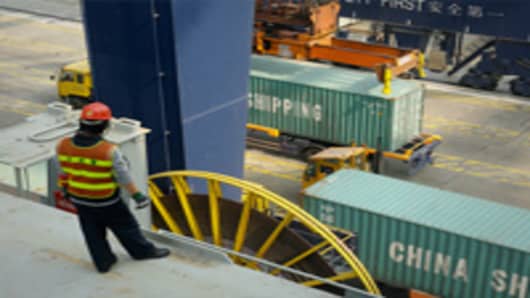The global shipping industry has been treading water during the global economic slowdown but in the last 12 months the Baltic Dry Index, which measures the haulage costs of freight, has dropped around 40 percent.
According to credit rating firm Micro shipping charter rates have plummeted to around $8,000 a day from a pre-crisis peak of $22,000. The steep drop in rates has not only meant that smaller freight companies are struggling to stay afloat but previously dominant shipping partners, such as Europe and China, are being challenged from unexpected quarters.
Shipping e-commerce platform Inttra has joined up with research firm SeaIntel to launch a “Reliability Index” to analyze the factors affecting the performance and reliability of the shipping industry.
Inttra’s Chief Executive Ken Bloom spoke to CNBC’s “Worldwide Exchange” about the effect of delivery delays.
“It’s a huge problem for the industry, for big shippers and small shippers alike. Basically people are left guessing when their container will arrive and as 95 percent of all ocean trade depends on ocean shipping, this creates a huge problem,” Bloom said.
Since 2008 there have been “fairly dramatic swings" in global shipping trade with the weak demand for shipping and freight services having a stagnating effect in established markets, but no change in reliability, he said, adding that reliability will become increasingly important in the "new normal" times.
“We’re seeing some pretty dramatic shifts. First of all, China — the largest exporting country in the world — typically has shown double-digit increases in trade year on year; comparing just 2008 to 2011, we see barely any growth at all."
“On the other hand you’ll see fairly dramatic increases from South Korea, from Vietnam, even from the U.S. So, you’re seeing some pretty dramatic shifts in a couple of years’ period,” he added.
Bloom told CNBC that Inttra viewed shipping as a leading indicator of the state of global economic trade, and for them, the prognosis wasn’t good. In particular, there was concern over the waning trade between previous shipping giants of Asia and Europe, he said.
“We’re not seeing a lot of growth from Europe; most notably trade patterns from China to France, China to Belgium, are particularly lack-luster and give us a cause for concern about Europe in general,” Bloom said.



